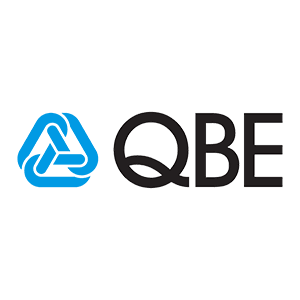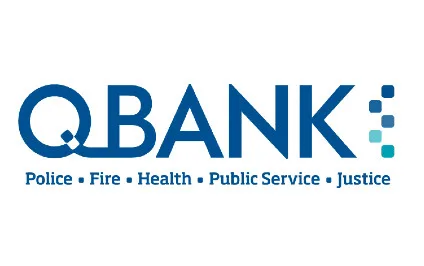5 Mortgage stress myths busted: LMI, refinancing, fixed rates and more

Feeling the pressure around your mortgage? It's understandable. But you also need to make sure you identify the correct underlying cause.

 Sponsored by QBE – helping customers learn more about lenders' mortgage insurance (LMI). Learn more on Finder's LMI hub, brought to you by QBE Insurance. Providing LMI since 1965.
Sponsored by QBE – helping customers learn more about lenders' mortgage insurance (LMI). Learn more on Finder's LMI hub, brought to you by QBE Insurance. Providing LMI since 1965.
There's a lot of discussion in the media at the moment about mortgage stress.
While it's a very real concern, there have still been a few myths and misconceptions that have done the rounds, too.
So we're taking a look at some of the most common misunderstandings, to clarify and highlight some of the things you should know if you're currently experiencing mortgage stress.
Myth 1: Refinancing will automatically mean lower repayments
Refinancing can definitely be an effective way to reduce your home loan repayments.
It's not guaranteed, though – and there are a wider range of factors that need to be considered.
For example, refinancing can attract a range of different fees from your existing or new lender – sometimes both. Application fees, settlement costs, valuation fees and more may need to be factored in.
Fees like this can cut into the prospective savings you might otherwise make.
Refinancing can affect your credit score. So it's not always an ideal option if you plan to borrow for other purposes in the near future.
Myth 2: Rising interest rates are the main consideration for refinancing
Reducing interest rates – and by extension, reducing repayments – are definitely a big consideration for many people when it comes to refinancing.
But they're not the only reason, either.
Refinancing is also a means to add new features to a loan. For example, you might want to be able to add cash redraw, offset accounts or the ability to make extra repayments.
Many people also refinance to borrow more money via their equity for renovations, too. This can also be a way to finance additional investment properties, too.
It can also be a way to reduce fees, or to switch to a lender you're more comfortable with.
So if you're seriously thinking about refinancing, make sure that you think more broadly than just the interest rate.
Myth 3: LMI is just adding extra cost to my mortgage – it's too expensive!
It's true that LMI can add extra cost to your mortgage.
Rather, LMI can be used to help people get into a home sooner, particularly if they don't have a large deposit saved.
Although it needs to be used in conjunction with responsible financial habits, LMI can help people get into – and stay – in a home of their own.
LMI can usually be capitalised as part of the home loan too; you don't generally need to make upfront payments.
Tools like the LMI Calculator can help give you a clearer picture of how much extra you'd expect to pay.
It also doesn't need to interfere with your choice of lender. LMI providers like QBE offer LMI via a range of different lenders, so you should still have access to a wide selection of home loans.
Myth 4: Fixed rate mortgages are all about beating rate rises
It's a pretty common misconception that fixed rate loans are about beating rate rises. But this isn't quite accurate.
It's hard to time rate moves. So fixed rate mortgages are more about certainty and planning.
They lock in a specific rate for you, for a set period of time. This can make it easier to budget, and it does mean that if the cash rate rises, you won't have your repayments fluctuate.
Are they "better" than variable loans, though? Well, that varies.
You need to weigh up considerations like loan features and where we are in the interest rate cycle. Depending on the lender, variable rate loans may offer a more extensive range of features on their own, with fixed-rate staying relatively bare bones.
Fixed rate loans can definitely offer a range of advantages for borrowers. But they also need to be viewed in light of these other factors, too.
Myth 5: "I'm having a tough time meeting payments – I need to sell."
Mortgage stress can be extremely daunting, and it's no surprise that many people feel they simply need to sell up as a result.
The good news is that this isn't necessarily the case.
Reassessing the household budget can potentially help reduce the financial strain. You'd be surprised how much money can fly under the radar if you don't have an effective budget in place.
We touched on refinancing earlier, and this can help relieve mortgage stress in many situations. It needs to be a considered process, but it can aid in restructuring your finances more effectively.
Additionally, you should always talk to your lender. They may have hardship provisions available.
However, if you realise there may be an issue – it's always best to talk to your lender sooner rather than later. This gives both of you more time to work towards an effective solution.
Visit the QBE LMI hub to learn more about LMI today.
Compare home loans from QBE's partner lenders
| Lenders | |||
|---|---|---|---|
 |  | ||
 |  | ||
 |  | ||
 |  | ||
 |  | ||
 | |||
 |  | ||
 |  | ||
 | |||
 | |||
 |  | ||
 |  | ||
 |  | ||
 | |||
 |  | ||
 |  | ||
 | |||
 |  | ||
 |  | ||
 | |||
 |



